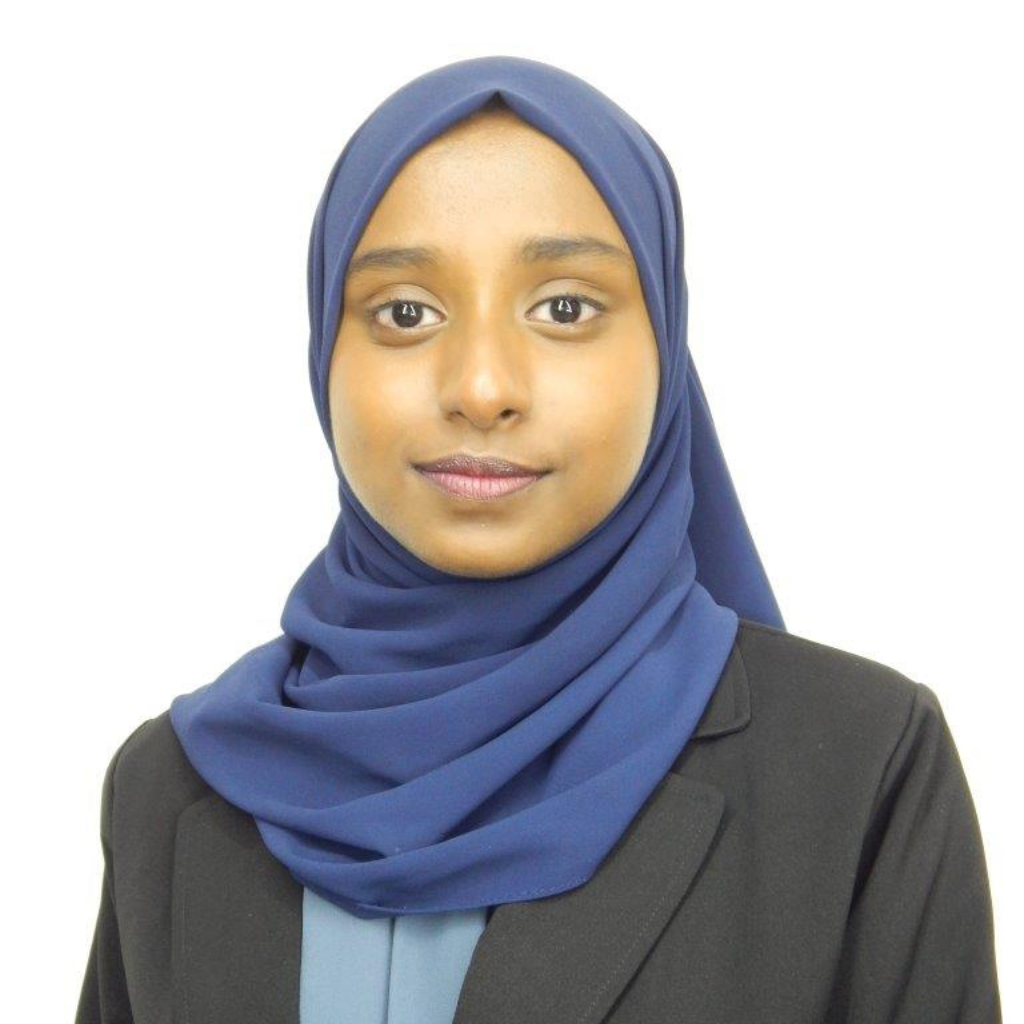Case Summary
Appellant: Prosecutor General’s Office
Defendant: Ibrahim Shah
Court: High Court of the Republic of Maldives
Case no.: 2019/HC-A/325
Justice’s bench: Uz. Ali Sameer, Uz. Mohamed Niyaz and Uz. Hussain Shaheed
Nature of dispute: Marital rape
Case registration date: 23 June 2019
Judgment date: 1 October 2020
Case appealed: Prosecutor General’s Office v. Ibrahim Shah decided by the Criminal Court of the Maldives under case no.: 752/Cr-C/2016.
Facts
Ibrahim Shah (“Defendant”) and Ziyadha Naeem were married but had been living separately in two houses since June 2015. During this period, she expressed her desire for a divorce. In response, the Defendant told her to file a court case if she wanted a divorce and remarked that he would only divorce her after making her undesirable to anyone else.
On 3 December 2015, approximately six months after they began living apart, the Defendant called Ziyadha Naeem and accused her of fornication the previous night and demanded that she visit his residence. Ziyadha Naeem went to the Defendants house after collecting her child’s school booklist. Upon arriving, the Defendant forcibly lifted her clothes, threw her to the ground, and sexually assaulted her violently. Ziyadha Naeem lost consciousness during the assault.
After the incident, Ziyadha Naeem confided in people close to her and subsequently fell ill. Experiencing pain in her vagina and anus, she sought medical attention at Dr. Abdul Samad Memorial Hospital in Gaafu Dhaalu Atoll Thinadhoo on 6 December 2015. She returned to the same hospital with the same issues two days later, on 8 December 2015. Eventually, on 10 December 2015, she traveled to Male’ for further treatment. In Male’, she initially visited Dr. Yeganegi’s Clinic but was later transferred to Indira Gandhi Memorial Hospital. Tragically, she passed away while receiving treatment at Indira Gandhi Memorial Hospital.
Case Timeline
Criminal Court of the Maldives (Case no.: 752/Cr-C/2016)
The Defendant faced charges of marital rape under Section 20 (a) and (c) of the Sexual Offences Act (Act no.: 17/2014). The Criminal Court of the Maldives in this case decided that there was insufficient evidence to establish the charges against the Defendant and stated that the testimonies provided by the witnesses did not indicate that the Defendant had raped Ziyadha Naeem and that the postmortem report of Ziyadha Naeem did not indicate any injuries to the vagina or anus.
High Court of the Republic of Maldives (Case no.: 2019/HC-A/325)
The Prosecutor General’s Office (“Appellant”) appealed the decision of the Criminal Court of the Maldives on the following grounds.
- The Appellant claimed that despite the provisions outlined in Section 5 (a) and (b)(1) of the Judges Act of Maldives (Act no.: 13/2010), which requires judges to consider the evidence and proof presented in a case, the testimonies of numerous witnesses and documentary evidence submitted by the prosecution to prove the case were not taken into consideration.
- The Appellant claimed that the Criminal Court of the Maldives rendered a verdict of not guilty in favor of the Defendant, despite the presentation of sufficient evidence, as required under Article 51 (h) of the Constitution of the Republic of Maldives 2008, to find the Defendant guilty of marital rape beyond a reasonable doubt.
Judgment
The High Court of the Republic of Maldives, in its judgment, held that the following essential elements required to establish marital rape under Section 20 of the Sexual Offences Act were present in this case.
- Marital Relationship: In the present case, no doubts or questions were raised as to the fact that the Defendant and Ziyadha Naeem were legally married at the time of the incident.
- Exceptional circumstance: Rape is not generally recognized as an offence between spouses under Article 14 of the Sexual Offences Act. However, in exceptional circumstances, sexual intercourse between a wife and her husband without her consent is to be considered marital rape. Section 20(a)(4) of the Sexual Offences Act states that if the husband and wife, while married, are living separately based on an agreement between them and if, in such a situation, forceful penetration occurs, it qualifies as an exceptional circumstance where charges of marital rape can be pursued. In the present case, although there was no formal written agreement between the Defendant and Ziyadha Naeem, as the law does not prescribe specific requirements for such an agreement, their separate living arrangements since June 2015 can be regarded as an agreement of that nature, thus establishing the presence of the exceptional circumstance as required by the law.
- Forceful Penetration: Given the inherent challenges of obtaining eyewitnesses in cases involving sexual offences that occur behind closed doors, Section 52 of the Sexual Offences Act allows for the admissibility of hearsay evidence as primary evidence, along with other compelling corroborative evidence, to establish the occurrence of a sexual offence. In this case, to establish forceful penetration, the Appellant provided hearsay evidence through various witness testimonies of close friends and family members of Ziyadha Naeem. Mobile forensic reports were provided, documenting conversations between the Defendant and his eldest child regarding the incident. Furthermore, expert witness testimonies from Dr. Yeganegi, Dr. Hassan Umar, and nurses who treated Ziyadha Naeem provided detailed accounts of the injuries sustained to the vagina and anus, supported by other relevant medical documents. Call logs made by the Defendant to Ziyadha Naeem on 3 December 2015, along with the receipt detailing the collection time of the school booklist voucher by Ziyadha Naeem, further corroborated the chain of events.
- Lack of Consent: Witnesses provided accounts stating that Ziyadha Naeem had previously declined to engage in sexual activity with the Defendant. They testified that Ziyadha Naeem communicated to them that the Defendant had forcibly raped her on 3 December 2015 and that she had lost consciousness during the incident. These testimonies are consistent with the findings documented in the medical reports, supporting Ziyadha Naeem’s lack of consent.
Taking into account the aforementioned factors, the High Court of the Republic of Maldives overturned the judgment of the Criminal Court of the Maldives in case no. 752/Cr-C/2016 and found the Defendant guilty of martial rape, sentencing him to 3 years in prison.
Editorial Team

Yafis Ahmed
Author

Suma Ilyas
Editor
